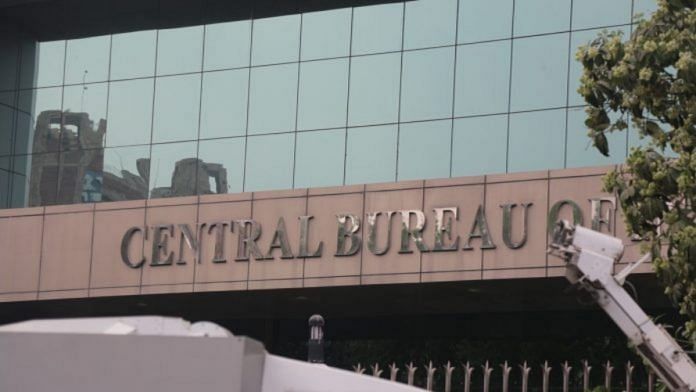New Delhi: Extending the tenures of the directors of the Enforcement Directorate (ED) and the Central Bureau of Investigation (CBI) will strengthen law enforcement agencies, improve inter-agency coordination and will help “maintain independence” — this is what the bill proposing amendments to the Delhi Special Police Establishment Act, tabled in the Lok Sabha Friday, states.
The bill will replace the ordinance brought in by the government on 14 November, which extended the tenure of the two agency chiefs to five years, allowing three yearly extensions after completion of two years in office. Before the ordinance, the two posts came with a fixed two-year tenure.
The bill says it is rational to have a fixed upper limit to the tenure of such appointments to “maintain independence”.
In the bill, the Modi government has stated that India faces certain sensitive investigative and legal processes in important cases, requiring extradition of fugitive offenders, which need a “continuum”.
The government has also argued that the ED and CBI chiefs are a “relevant and significant part of the global movement against corruption and money laundering”, and, hence “any possibility of restricting the tenure may defeat the object under certain circumstances”.
In the bill, the government has referred to “global contingencies” such as fugitives running away, the laundering of funds using shell companies, and extradition cases.
“There is every possibility of such global contingencies occurring in the future and therefore, amendments in the Delhi Special Police Establishment Act, 1946, are necessitated to meet such contingencies whenever arises with certain in-built safeguards,” the bill says.
The bill was moved by Union Minister Dr Jitendra Singh and is likely to be taken up for debate in the Lok Sabha next week.
Also Read: Doubters of Modi govt’s extension of ED, CBI directors’ tenure, here’s what you’re missing
‘Longer tenures for robust processes’
According to the bill for “robust processes”, it is mandatory for senior personnel to hold their positions for sufficiently long tenures.
The bill says enhancing capacity and resources for continuing oversight by the senior officers, especially the heads of the two agencies, is “fundamental to the proposed re-strengthening”.
“It is strongly felt that assured long tenures of the heads of ED and CBI on similar lines would be highly desirable,” the bill says.
The bill points out that the ED has the sole jurisdiction to investigate money-laundering cases, while the CBI has the primary responsibility to investigate cases of corruption.
With the interlinking of persons and groups involved in money-laundering and corruption activities, unravelling the crime and corruption nexus through the ED and CBI becomes not only complex, but also has international ramifications, the legislation says.
Thus, investigation of such crimes requires the “two investigating agencies to have robust processes and senior personnel in position for sufficiently long tenures”, the bill adds.
It also cites the practice in major countries. “Considering that ordinarily, longer tenures are an established practice in major countries, two-years’ tenure ought to be a minimum,” it states.
“In our case, however, owing to several factors, including the issues of seniority and hierarchy, two-years’ tenure has in fact become the upper limit with individuals being appointed close to their date of superannuation.”
The bill also says that fixing an upper limit to the tenure of these senior officers will ensure continuity, depending upon the exigencies of the office at a given point of time and also “safeguard the sanctity and independence of the sensitive position occupied by the person in-charge and will remove possibility of any other interpretation”.
(Edited by Arun Prashanth)
Also read: NIA probes its own gallantry-awardee SP for ‘espionage, extortion’ in Khurram Parvez case



